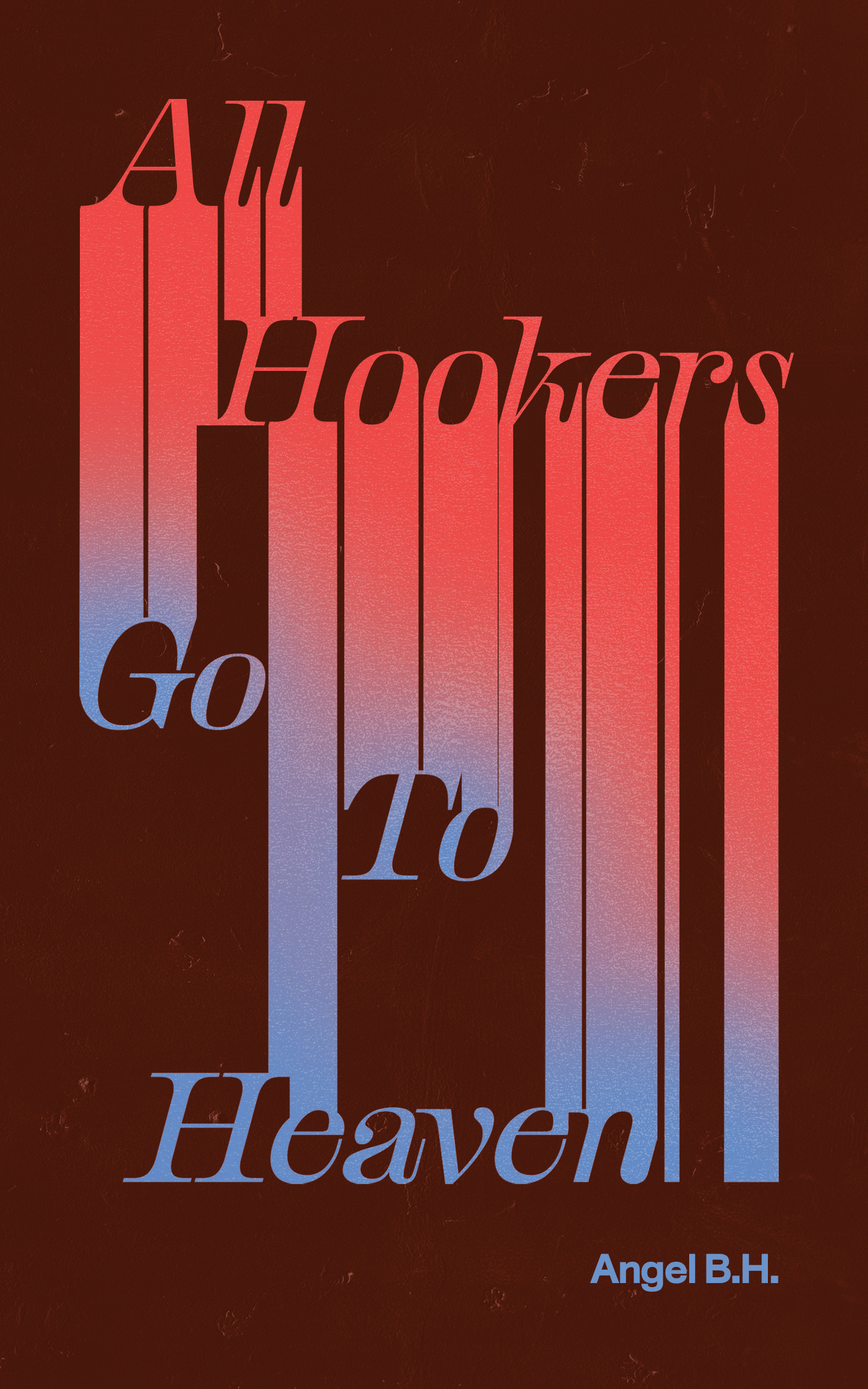All Hookers Go To Heaven
by Angel B.H.
Invisible Publishing
368 pages
$24
“Since the promise of eternal life was no longer on the horizon, I sought, instead, to experience the full expression of my own self-destruction. Instead of aiming for Heaven, I was now hurtling towards Hell,” narrates Magdalena, the protagonist of Angel B.H.’s first novel, All Hookers Go To Heaven. The novel exists at the intersections of religion, queerness, and colonialism as it follows Mag’s journey from a small-town girl raised by Evangelical Christians to her life as a sex worker with piercing vulnerability.
Acknowledging her bisexuality is the forbidden fruit that initially tempts Mag to stray off the path of “eternal life.” Once off course, Mag trades the Holy Father for the spirit of capitalism, drawn to working as a stripper after being laid off and feeling desperate for money. She dubs this hunger for cash the “Hustler’s Curse.” Mag embraces earthly comforts like money and sex over a religion that promises a love that she can’t touch or perceive.
As the Hustler’s Curse leads Mag deeper into an illegal and dangerous industry, B.H. shows how society’s desire to punish and penalize “so-called sinners” ends up harming prostitutes far more than the tricks who eternally solicit them. The novel is keenly aware of this hypocrisy, and readers will fear for Mag’s safety and empathize with her when she says, “I didn’t know a single girl in the industry who had come out of this work unscathed.”
Mag’s fraught journey from an Evangelical Christian to “anti-virgin” is heightened even further with B.H.’s clever use of juxtaposition. Sex work and religious vernacular come together to produce extraordinary imagery, a contrast that serves to emphasize the importance and tension between the two opposing worlds Mag occupies, along with her desire for nuance.
When Mag’s attraction to women is awakened at Discipleship Training School, she likens her crush to a “slender, sparkling Dutch Messiah” that renders her a “breathless disciple.” While on a risky vacation with a mysterious trick, Mag scrawls into her diary, “Lord, do you hear the prayers of sugar babies? Working girls? Hookers?”
Mag is not some background sinner or a bewitching plot-twist villainess, but a fully realized character in her own right, “navigating her way through an imperfect world and working towards moments of ease, of respite.” All Hookers Go To Heaven’s enduring, frank narrative reminds us that the working girl is a human girl, too. Her story—one that illuminates the abrasive details of the world’s oldest profession—reminds us of the depths of the human desire for the freedom to express the person within.














